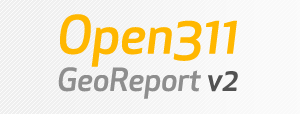A closer look at the common data types from the 311 APIs
We’ve been working to add more 311 APIs from more cities to the Streamdata.io API Gallery. 311 is the city service for reporting non-emergency situations. Things like trash in the road, trees down, potholes, those things that can make our lives a little more difficult. 311 was the telephone short code, but like everything else has moved online and become digital. Most cities have a 311 website, and maybe a Twitter account, while others have an API for reporting 311 incidents, and pull data on incidents others have reported.
To support the world of 311 there is an open-source API standard called Open311, which provides a common API definition that any city can implement as their Open311 compliant API. Making it so that any city has the potential to speak the same language when providing an API. This is something you can see in action with these five cities:
– San Francisco, CA
– Chicago, IL
– Boston, MA
– Bloomington, IN
– Baltimore, MD
While each one uses a different subdomain, they all use the same path, parameter, and schema for the API request and response. Imagine if this existed for all cities. It would allow anyone to report and view 311 incidents for their city as HTML or as JSON and XML. Now, imagine if all city data followed a common API design and schema, and simple JSON and XML web APIs were always available by default. Right now, there are open standards for 211 (Health & Human Services), 311 (Non-emergency Incidents), and 511 (Traffic, Transit & Travel). All three of these specifications need more support, and investment, but they are available as a common blueprint that can be used by any city.
Think of the possibilities if all cities had APIs, and used common API and schema specifications like 211,311, and 511. Web and mobile applications would be able to seamlessly switch from city to city, and it would be easier to aggregate, integrate, and make sense of what is happening within each city. It would be easier to provide real-time streams of municipal data, allowing consumers to subscribe to the types of information they want to stay in tune with, and tune out the rest of the noise. We will keep profiling 311, alongside other city data source, and adding to the Streamata.io API Gallery, while also helping evangelize and education city-data advocates about the potential of open API standards like 311.


